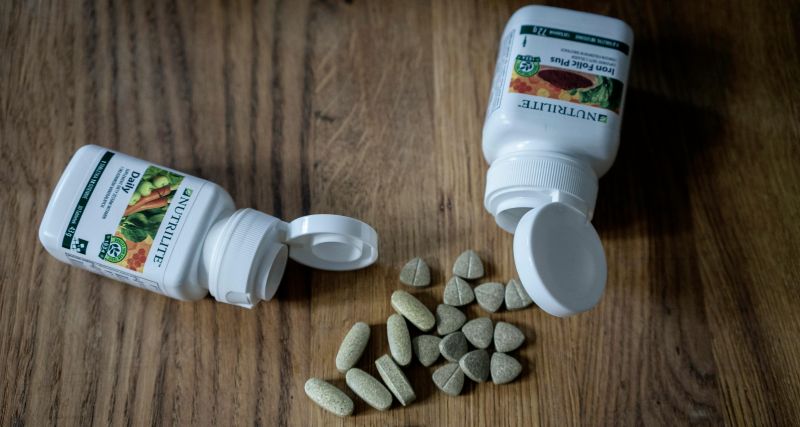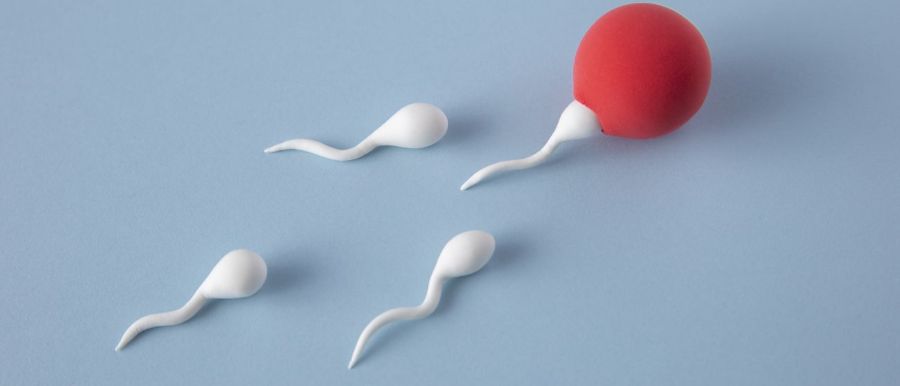Folic Acid: Its Role in Fertility

Folic Acid: Your Indispensable Ally for Fertility and a Healthy Pregnancy
If you're thinking about having a baby or are already on the road to searching, you've probably heard of folic acid. This vitamin, also known as vitamin B9, is much more than just a supplement; it's a key player in your reproductive health and in the development of your future baby.
In this article, we're going to explore why folic acid is so important and how it can help you in your dream of starting a family.
Important points:
- El folic acid is vital for preventing serious defects in the baby's brain and spinal cord (neural tube).
- It is recommended that women looking to become pregnant take between 400 and 800 mcg of folic acid per day, starting at least 3 months before trying to conceive.
- It can also improve the quality of eggs and sperm, increasing your chances of pregnancy.
What is Folic Acid and Why Is It So Key to Reproduction?
El folic acid It is the synthetic version of folate, a B vitamin that the body cannot produce on its own, so we must obtain it from the diet or supplements. It is essential for basic cellular processes, such as the creation of DNA (the “instruction manual” of our cells) and the formation of red blood cells.
A folic acid deficiency can occur because of a poor diet, digestive problems, or the use of certain medications. This lack can lead to anemia and, yes, also affect fertility in men and women.
Why is it so important for your fertility?
This vitamin is essential for the rapid cell division that occurs when eggs and sperm are formed, and during early embryo development. La World Health Organization (WHO) highlights that having adequate levels of folate is crucial to prevent birth defects, especially neural tube defects (such as spina bifida or anencephaly), affecting the brain and spinal cord [^1].
Recent research suggests that folic acid also influences egg quality and ovarian reserve (the number of eggs you have left). A study in the Journal of Human Reproductive Sciences found a positive relationship between adequate levels of folate and better egg quality in women undergoing IVF treatments [^2].
Folic Acid at Every Stage of Reproduction
Effects on the Female Fertility
Folic acid contributes significantly to women's reproductive health. Maintaining optimal levels is associated with regular menstrual cycles and better egg quality.
Recent studies have shown that supplementing with folic acid can be beneficial even in cases of infertility with no apparent cause. If you are preparing for fertility treatments, your doctor will probably recommend taking this vitamin.
Influence on Male Fertility
Although less well known, folic acid is also very relevant to male fertility. Help in the spermatogenesis (sperm formation) and can improve semen quality, including sperm concentration, mobility and shape.
A study in Fertility and Sterility found that men with adequate levels of folate had fewer chromosomal abnormalities in their sperm, which could reduce the risk of early miscarriages [^3]. That's why, if you're looking for a pregnancy, your partner could also benefit from supplementation.
Crucial Role in Baby Development
Folate is vital during first weeks of pregnancy, even before many women know they are pregnant. He is actively involved in the formation of the neural tube of the embryo, the structure that will eventually become the baby's brain and spinal cord.
El American College of Obstetricians and Gynecologists (ACOG) folic acid supplementation before conception is strongly recommended to prevent these defects, as the neural tube closes approximately 28 days after conception [^4]. If you're considering advanced treatments such as IVF, maintaining optimal folate levels is especially important.
How Do You Know If You Have Enough Folic Acid?
Folate Deficiency Screening
Folate levels can be measured with a blood tests. Folate can be tested in serum (what you've recently eaten) or in red blood cells (which gives an idea of your long-term reserves).
Generally, adequate levels are considered if they exceed 3 ng/ml in serum And the 140 ng/ml in red blood cells. Lower values may indicate a deficiency and the need for supplements.
Groups at Higher Risk of Deficiency:
- Women of reproductive age.
- Women who are pregnant or breastfeeding.
- People with digestive diseases (such as celiac disease or Crohn's disease).
- Those who consume alcohol excessively.
- People who take certain medications (such as some anticonvulsants or methotrexate)


Supplementation: How Much and When?
Folic acid supplementation is recommended for all women of reproductive age.
General Recommendations:
Los Centers for Disease Control and Prevention (CDC) They advise that all women of childbearing age should drink 400 mcg (micrograms) of folic acid per day. The ideal is to start at least three months before trying to conceive and continue throughout the first trimester of pregnancy [^5].
These recommendations also apply if you are planning assisted reproduction treatments, since folic acid is still essential for embryo development.
Therapeutic Doses for Special Cases:
In some situations, higher doses of folic acid are needed (up to 4-5 mg daily):
- Women with a personal or family history of neural tube defects.
- Patients with certain genetic variants that affect how the body processes folate (such as mutations in the MTHFR gene); in these cases, a special form of folate called methylfolate.
Natural Sources of Folic Acid
Although supplementation is crucial, you can supplement your intake with folate-rich foods:
Folate-Rich Foods:
- Dark green leafy vegetables: Spinach, kale, broccoli, asparagus.
- Legumes: Lentils, garbanzos, beans.
- Citrus fruits: Oranges, grapefruits.
- Avocado and nuts.
- Whole grains and fortified products: In many countries, flours and cereals are fortified with folic acid.
Bioavailability and Absorption:
Natural folate from food is absorbed worse than synthetic folic acid from supplements. Folic acid from supplements is better absorbed (85-100% on an empty stomach), while folate from food is only absorbed by about 50%.
Factors such as prolonged cooking (which can destroy up to 90% of the folate in food) or certain medications can affect absorption. To optimize it, it is usually recommended to take supplements in the morning, on an empty stomach.
Frequently Asked Questions
- When should I start taking folic acid if I'm planning a pregnancy? The ideal is to start supplementation at least three months before trying to conceive. This ensures that you have adequate levels during the formation of the baby's neural tube, which occurs in the first four weeks of embryonic development, often before you know you're pregnant.
- Can Too Much Folic Acid Be Harmful? Folic acid is generally safe. However, very high doses (more than 1,000 mcg daily) for a long time may mask a vitamin B12 deficiency or, according to some recent research, affect glucose metabolism. Always follow your doctor's recommendations.
- Should men also take folic acid when looking for a pregnancy? Yes, there is increasing evidence that folic acid benefits sperm quality. Studies suggest that supplementing men (400-800 mcg daily) may improve concentration, mobility and reduce chromosomal abnormalities in sperm. Therefore, many specialists recommend it for both members of the couple.
- Can folic acid help with cases of infertility with no apparent cause? Although there is no definitive answer, some studies have observed better pregnancy rates in couples with unexplained infertility when both have optimal levels of folic acid. This vitamin could positively influence the quality of eggs and sperm and the implantation process. More research is needed to confirm this.
Conclusion
El folic acid is a fundamental pillar in reproductive health, both for women and men. Its impact ranges from preparation for conception to the crucial early stages of embryonic development, affecting the formation of eggs and sperm, their quality, and the prevention of serious defects in the baby.
Science strongly supports the recommendation to supplement with folic acid to all people of reproductive age who are planning a pregnancy, with a standard dosage of 400-800 mcg per day. For groups at higher risk, the dose may be adjusted. This simple preventive action can have a huge impact on the health of your future baby and, potentially, on your fertility outcomes.
In addition to supplements, a balanced diet rich in folate foods will complement this strategy. To find out the exact dosage and duration for you, always consult a health professional who specializes in reproductive medicine.
Are you thinking about starting fertility treatment? At Avida Fertility, we accompany you with personalized attention and all the care you deserve. Schedule your consultation today and take the first step towards the dream of starting your family.

References:
[^1]: World Health Organization (WHO). (2024). Neural tube defects. https://www.who.int/news-room/fact-sheets/detail/neural-tube-defects
[^2]: Gaskins, A.J., & Chavarro, J.E. (2018). Diet and Fertility: A Review. Journal of Human Reproductive Sciences, 11 (3), 195-202.
[^3]: Wallock, L.M., et al. (2021). Folate and sperm DNA integrity: a cross-sectional study. Fertility and Sterility, 115 (2), 389-397.
[^4]: American College of Obstetricians and Gynecologists (ACOG). (2020). Folic Acid: Essential for a Healthy Baby. https://www.acog.org/womens-health/faqs/folic-acid-essential-for-a-healthy-baby
[^5]: Centers for Disease Control and Prevention (CDC). (2023). Folic Acid. https://www.cdc.gov/ncbddd/folicacid/index.html
.png)
.png)









.svg)
.svg)